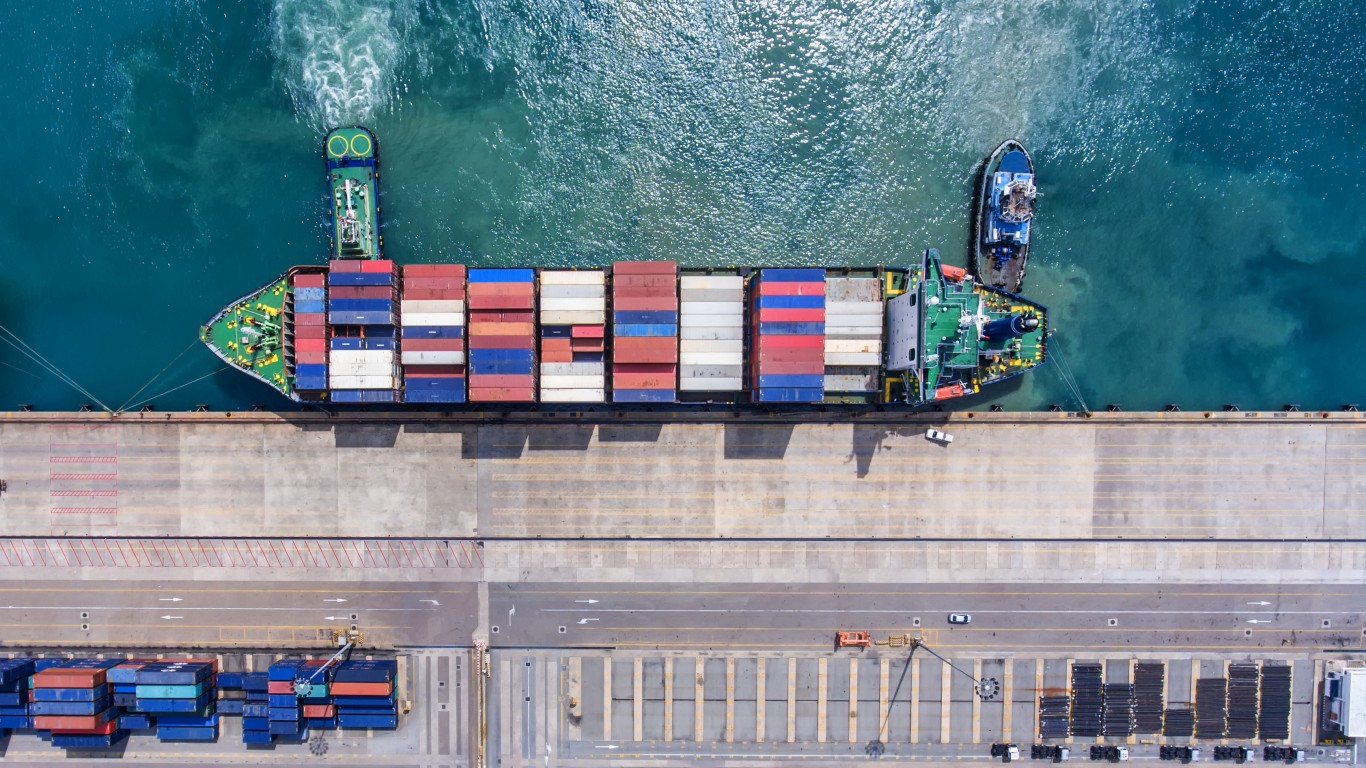
The World Trade Organization (WTO) on Thursday published its Goods Trade Barometer, a revamped version of its World Trade Outlook Indicator. By any name, the news is not encouraging.
Global trade in goods posted a barometer index of 95.7, below the medium-run trend score of 100. The reading, according to the WTO, suggests that the volume of trade in goods during the third quarter is likely to remain below trend. The WTO plans to debut its Services Trade Barometer next month to accommodate the non-goods part of world trade.
All component indexes posted scores below trend although the WTO noted that the components “show some signs of having bottomed out.”
The lowest index score was 90.7 in electronics components, while the air freight index score of 91.4 was close behind. Trade in electronics almost certainly has been negatively affected by the U.S. actions against China’s Huawei Technologies. And the air freight volumes in the second quarter of this year were 3.3% below year-ago volumes, according to the International Air Transport Association (IATA).
The automobile production and sales index came in at 93.5, while the agricultural raw materials index posted a score of 97.1 and export orders scored 97.5. The only index value close to the trend was container shipping with a score of 99. However, the poor report earlier this week for Maersk, the world’s largest container shipping firm, indicates further weakness for the container industry.
The WTO noted:
[T]rade flows hit by new restrictions continued to be at historically high levels between mid-October 2018 and mid-May 2019. Tensions leading to higher trade barriers and greater uncertainty pose significant downside risks to trade growth forecasts.
While the trade war between the United States and China continues to ripple through global trade, it’s worth pointing out that China, which appears to be in the driver’s seat, actually stands to lose more in the long run than does the United States.
The U.S. ban on buying from or selling to Huawei had an instant and large impact on the company and the country. China still depends on U.S. technology expertise gained through demands that companies wanting to do business in the country cough up their intellectual property. More important, perhaps, the long-held U.S. belief on the wonders of free trade (in this case, both sides, Democrats and Republicans, were on the same page) has been rattled. Bloomberg’s Noah Smith says the trade war’s most lasting impact may be ideological:
A psychological dam has broken, and what used to be a comfortable elite consensus in favor of free trade is swinging strongly in the opposite direction. On the left, presidential candidate Elizabeth Warren now champions a weaker dollar and expanded government assistance to U.S. exporters, as well as a much cagier attitude toward future trade deals. On the right, intellectuals are warming to the idea of government intervention on behalf of key industries.
Global trade may have some serious adjustments to make to fit into that brave new world.
100 Million Americans Are Missing This Crucial Retirement Tool
The thought of burdening your family with a financial disaster is most Americans’ nightmare. However, recent studies show that over 100 million Americans still don’t have proper life insurance in the event they pass away.
Life insurance can bring peace of mind – ensuring your loved ones are safeguarded against unforeseen expenses and debts. With premiums often lower than expected and a variety of plans tailored to different life stages and health conditions, securing a policy is more accessible than ever.
A quick, no-obligation quote can provide valuable insight into what’s available and what might best suit your family’s needs. Life insurance is a simple step you can take today to help secure peace of mind for your loved ones tomorrow.
Click here to learn how to get a quote in just a few minutes.
Thank you for reading! Have some feedback for us?
Contact the 24/7 Wall St. editorial team.
 24/7 Wall St.
24/7 Wall St.


